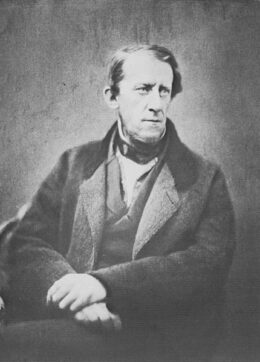
Printed
47 pages
Author(s)
Blaubart
In this rewriting of the famous Bluebeard tale, Pocci parodies the troubadour style that was in vogue at the time and which he himself used several times in his work as a storyteller and illustrator: in 1838, he had already published his own version of the tale, in a versified and illustrated form. Bertha is a romantic girl who has read too many chivalry novels and only dreams of eloping from her father's house on a stormy night in the moonlight: she will be punished. As is often the case, Pocci's satirical intent is expressed in the names he gives to his characters, whether Bluteck for Bluebeard's companion (Blut means "blood"), or Geldsack ("Purse") for Bertha's father.
A young girl's romantic reveries facing a man's cruelty
On the advice of his companion Bluteck, the cruel knight Barbe-Bleue (Blaubart) decides to remarry for the seventh time and kidnaps Bertha, the eldest daughter of the rich Geldsack. The next day, Barbe-Bleue leaves the castle and gives Bertha all the keys, including the one to the secret cabinet, which he nevertheless forbids her to enter. But Bertha disobeys him and discovers the decapitated bodies of his previous wives. To punish her for her curiosity, Barbe-Bleue sentences her to death. She is saved by her former suitor Hugo von Hohenfels, who, with the help of the servant Kasperl, enters the castle and kills Barbe-Bleue.
First performance
Münchner Marionettentheater
Publications and translations
Franz Pocci: Lustiges Komödienbüchlein, München, J.J. Lentner, 1859
Franz von Pocci: Lustiges Komödienbüchlein 1, "Editio Monacensia", hrsg. von Ulrich Dittman und Manfred Nöbel, München, Allitera Verlag, 2007
